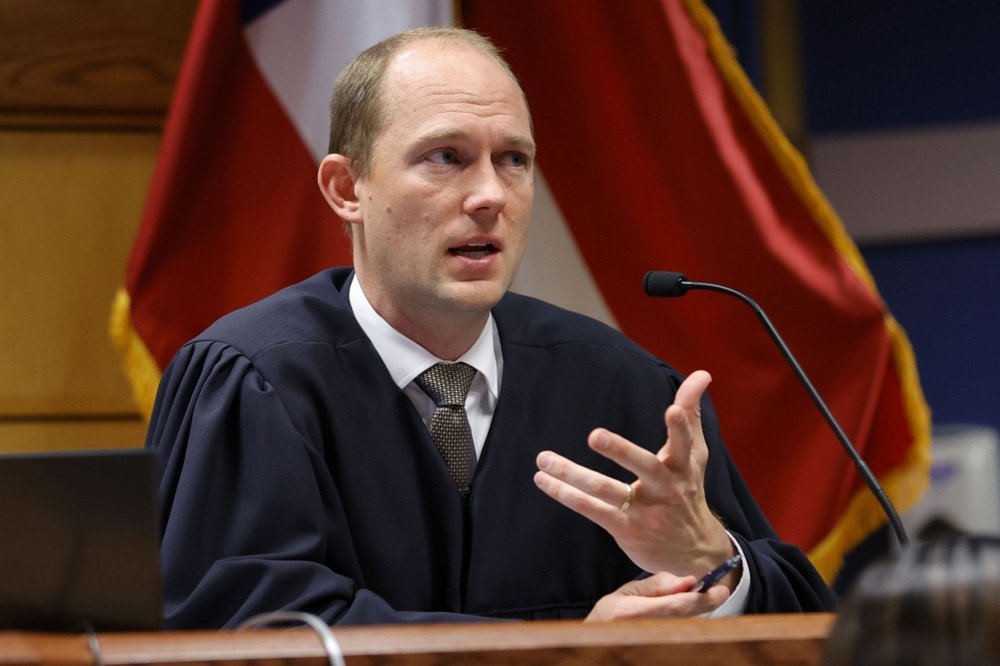The intersection of free speech and legal accountability has long been a contentious battleground in American jurisprudence. The recent ruling by Fulton County Superior Court Judge Scott McAfee denying former President Donald Trump’s bid to dismiss election interference charges on First Amendment grounds reignites debates surrounding the limits of political speech and the consequences of falsehoods in public discourse. This article delves into the nuances of the case, examining the complexities of protecting free speech while addressing allegations of criminal conduct.
Understanding the Legal Arguments:
Trump and his co-defendants, including Rudy Giuliani and John Eastman, invoked the First Amendment, asserting that their actions and statements protesting the results of the 2020 presidential election were protected political speech. They contended that the charges brought by District Attorney Fani Willis’s office infringed upon fundamental rights of political expression, association, and petitioning the government. However, Judge McAfee’s ruling emphasizes that constitutional protections do not shield individuals from accountability for criminal acts committed under the guise of political discourse.
Exploring the Court’s Decision:
Judge McAfee’s 14-page ruling underscores the distinction between legitimate political expression and actions that constitute criminal behavior. While acknowledging the importance of safeguarding free speech, the judge deemed the defendants’ conduct as willful dissemination of false information intended to deceive and undermine democratic processes. By attempting to certify “alternate” electors and making baseless claims to overturn election results, the defendants crossed the line from political dissent to unlawful interference in governmental affairs.
Analyzing the Ethical Implications:
At the heart of this legal battle lies a broader ethical dilemma regarding the responsibilities of public figures and legal professionals in upholding the integrity of democratic institutions. While individuals have a constitutional right to voice dissenting opinions and challenge election outcomes through lawful means, they also bear a moral obligation to refrain from spreading falsehoods and subverting the electoral process. The case raises questions about the ethical boundaries of advocacy and the duty to uphold truth and transparency in public discourse.
Examining the Role of Falsehoods in Democracy:
The proliferation of misinformation and disinformation poses a significant threat to the democratic fabric of society. In an era marked by rampant online misinformation campaigns and echo chambers of ideological polarization, the dissemination of false narratives can erode public trust in institutions and sow discord among citizens. By holding accountable those who knowingly propagate falsehoods, the legal system seeks to safeguard the foundational principles of democracy, including the right to fair and honest elections.
Implications for Future Legal Precedents:
The outcome of the Trump election interference case carries significant implications for the interpretation of the First Amendment and the boundaries of political speech in the digital age. As courts grapple with the evolving landscape of online communication and the spread of misinformation, precedent-setting decisions shape the contours of permissible conduct in the realm of political discourse. Balancing the protection of free speech with the preservation of democratic norms remains a delicate task for legal scholars, policymakers, and society at large.
The Trump election interference case serves as a pivotal moment in the ongoing dialogue surrounding the intersection of free speech, political activism, and legal accountability. While the First Amendment guarantees robust protections for expressive freedoms, it does not grant immunity for criminal acts perpetrated under the guise of political protest. As society confronts the challenges of combating misinformation and safeguarding democratic processes, it must reaffirm its commitment to truth, integrity, and the rule of law as cornerstones of a healthy democracy.
